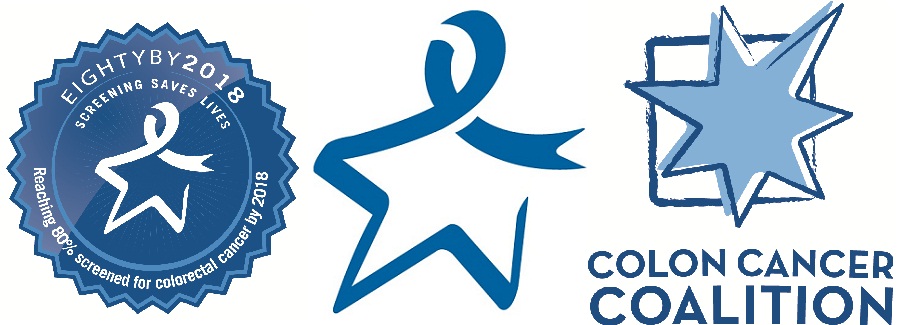
Dozens of groups nationwide commit to eliminating colorectal cancer as a public health problem embracing shared goal of 80% colon cancer screening rate by 2018
The Colon Cancer Coalition is joining other members of the National Colorectal Cancer Roundtable (NCCRT) from across the country in a pledge to be a part of the effort.
“We are committed to eliminating colorectal cancer as a major public health problem,” said Anne Carlson, executive director of the Edina-based Colon Cancer Coalition. “We can drastically reduce the number of adults who develop and die from this disease.”
The NCCRT, co-founded by the American Cancer Society and the Centers for Disease Control and Prevention (CDC), is dedicating the next four years to dramatically increasing U.S. colorectal cancer screening rates and making more people aware of the preventable nature of this disease.
Dozens of groups dedicated to eliminating colorectal cancer as a major public health problem joined together at the National Press Club in Washington, DC, on Monday, March 17, and across the country though streaming video stream, to hear new data related to progress in reducing deaths from colorectal cancer and to launch an effort to increase the nation’s colorectal cancer screening rate to 80 percent by the year 2018. Colorectal cancer screening is proven to save lives, and new data from the American Cancer Society show that investing in colorectal cancer screening efforts is paying off.
New American Cancer Society data released at today’s event finds:
- Colon cancer incidence rates have dropped 30 percent in the U.S. in the last 10 years among adults 50 and older due to the widespread uptake of colonoscopy.
- The largest decrease has occurred in people over age 65.
- The larger declines among these Medicare-eligible seniors likely reflect higher rates of screening because of universal insurance coverage.
- Nationally, colonoscopy use has almost tripled among adults ages 50 to 75, from 19 percent in 2000 to 55 percent in 2010.
Colorectal cancer is the nation’s second-leading cause of cancer-related deaths; however it is one of only two cancers that can be prevented by screening (the other is cervical cancer). Through colorectal cancer screening, doctors can find and remove precancerous growths (called “polyps”) in the colon. Removing polyps can prevent cancer altogether. Screening also helps to find colorectal cancer early, when treatment is most effective.
About one in three adults in the U.S. who are aged 50 to 75 years have not been tested for colorectal cancer as recommended by the U.S. Preventive Services Task Force, the American Cancer Society, and other key health organizations, according to a CDC report. There are several recommended screening test options, including: colonoscopy, stool tests (guaiac fecal occult blood test [FOBT] or fecal immunochemical test [FIT]), and sigmoidoscopy.
“Colorectal cancer screening represents one of our best lifesaving tools,” said Howard Koh, M.D., M.P.H., Assistant Secretary for Health for the U.S. Department of Health and Human Services. “Everyone should know there are several lifesaving screening tests – and the best test is the one that gets done.”
Despite research that shows colorectal cancer screening tests save lives, too many adults have never been screened. Those less likely to get tested are Hispanics, people aged 50-64, men, American Indian or Alaska natives, those living in rural areas, and people with lower education and income.
Part of the 80 percent by 2018 goal is to leverage the energy of multiple and diverse committed partners in the community to empower patients, providers, community health centers and health systems to deliver coordinated, quality colorectal cancer screening and follow up care.
“We are at a remarkable point in time, when decreasing deaths and suffering from colorectal cancer is entirely possible. By working together, demanding more of ourselves, and collectively pushing harder, we can prevent more cancers, and save more lives,” said Carlson. “We must do more to ensure men and women get screened for colorectal cancer according to the guidelines. Testing saves lives, but only if people are tested.”
Organizations interested in being a part of the 80 percent by 2018 effort should contact the NCCRT for details on how they can help.


[…] Adding Cologuard to the FDA approval list and allowing it to be covered under Medicaid gives patients one more way to be screened and to reach the national goal of 80% screening rates by 2018. […]
[…] screening rates in New York City are around 69%. “In order to reach the national screening goal of 80% by 2018, we all must do things tomorrow that we aren’t doing today,” states Anne Carlson, executive […]